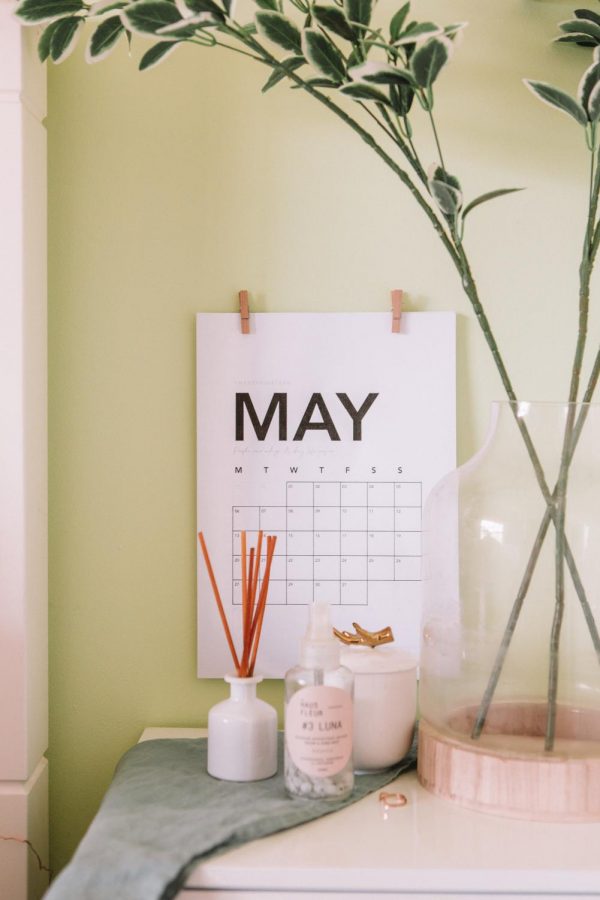May is Mental Health Awareness Month, a Time to Check in with Others About Their Wellbeing
May 12, 2020
The outside world continues its chaos as a student stares blankly out the window. Overwhelmed by feelings of loneliness, stress, and helplessness, the student consciously takes time for themself and draws. The intrusive thoughts give way to a mindful calmness, and the student’s stress subsides. The student completes their wellness exercise and returns to their daily schedule.
May marks the start of Mental Health Awareness Month in the United States. Observed since 1949, Mental Health Awareness Month serves to highlight the importance of healthy wellness practices and checking in with others about their wellbeing.
Mental health is a taboo topic of discussion, especially for youth. A lack of discussion paired with rising depression and anxiety rates among teens creates dangerous negative feedback loops and can lead to poor practices, such as substance abuse and even suicide. According to the United States Centers for Disease Control and Prevention, about 20 percent of all teens experience depression before they reach adulthood, and suicide is the third-leading cause of death for young people ages 15 to 24. Mental Health Awareness Month provides a much-needed reminder to take a moment for our own and others’ wellbeing as we live our busy lives.
As shelter-in-place orders continue across the globe in light of the COVID-19 outbreak, it is more important than ever to check in with one’s mental health and that of others during these uncertain, scary, and unprecedented times. “There’s a lot going on in our world right now and having some feelings and some overwhelming feelings is pretty normal and something to anticipate, so don’t hesitate to reach out,” Principal Julie Parks said.
While no one method works universally, there are certainly ways everyone can practice healthy mental care, even within quarantine. “If you’ve been feeling low for more than a month, reach out to someone you trust,” senior Amrita Pannu said. Letting others know what’s going on in your life lets them understand your position, gives them a better opportunity to assist you.
“Never be afraid to ask for help. When I felt overwhelmed by everything that was going on in my life, I reached out to one of my teachers who encouraged me to seek more robust support,” senior Athena Davis said.
However, there are many other ways to maintain one’s mental health outside of seeking professional or friendly guidance. “Beyond getting professional help, grow your own support networks. By talking to close friends about what you are dealing with, you open up your relationships to become mutually supportive. Also, physical health is so important for mental health. I run track and cross country and not only does the physical aspect improve my mental health, but the community support that comes with it does too,” Davis said.
Simple adjustments in one’s daily schedule can go a long way toward establishing healthy wellness habits. “Take care of your basic needs, make sure you’re eating enough, staying hydrated, and maintaining a healthy sleep schedule,” Pannu said.
Miramonte’s student wellness staff show a continual commitment to serving as resources for students, even as school campuses have closed. “We are still here for you as your wellness team, every school day on our same schedule. Now we’re doing Telehealth, which is a counseling session through Zoom, and the groups that are being run by Andy and Ray are still happening the same days and times. We’re still accepting new referrals so if you’re concerned and you want to reach out for yourself, a friend or classmate, or if you’re a parent who’s concerned and want to send a referral, send it our way, our link is on the website,” Wellness Coordinator Elisa Nevarez said. In addition to the individual sessions with support counselors, the Wellness Center also offers an open Zoom call for students during lunch hours every weekday from 12:45 to 1:45.
“A lot of people tend to dismiss mental health issues as surface-level problems because they might appear that way. It is so important to know that it’s okay to not be okay. You aren’t fishing for attention, you are addressing your health needs just as you would if you had a physical injury,” Pannu said.








